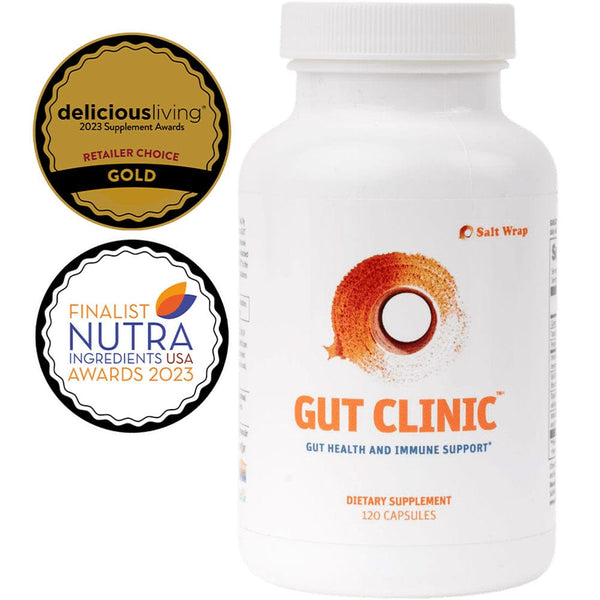The Ultimate Guide to Choosing the Best Gut Health Supplement for Your Needs
The Ultimate Guide to Choosing the Best Gut Health Supplement for Your Needs
Blog Article
Discover the Secret to Food Digestion and Immunity With Digestive Tract Wellness Assistance

Understanding Intestine Health And Wellness
Recognizing intestine health and wellness is vital for overall well-being, as it plays a considerable duty in food digestion, immunity, and even psychological health and wellness. The gut, consisting of the stomach tract, is liable for damaging down food, taking in nutrients, and expelling waste. A balanced gut setting ensures efficient digestion, permitting the body to use nutrients properly.
Moreover, intestine health considerably affects the immune system. The digestive tract houses a significant portion of the body's immune cells, and a healthy gut can help ward off virus and lower swelling. Interruptions in digestive tract health can cause an overactive immune reaction, potentially contributing to autoimmune disorders and allergies.
In addition, the intestine is usually referred to as the "second brain" because of the gut-brain axis, an intricate interaction network connecting the intestine and the mind. This link affects mood, cognition, and psychological wellness. Issues such as dysbiosis, identified by an inequality in intestine germs, have actually been connected with psychological wellness conditions, including anxiousness and clinical depression.
The Gut Microbiome Explained

The gut microbiome, a varied community of microbes residing in the gastrointestinal tract, plays an essential duty in keeping gastrointestinal health and general wellness. Consisting of trillions of germs, viruses, fungi, and other microbes, this facility community aids in the food digestion of food, the synthesis of vital nutrients, and the policy of metabolic processes.
Each individual's digestive tract microbiome is unique, affected by factors such as diet regimen, way of living, genetics, and ecological direct exposures. A well balanced microbiome supports optimal digestion by damaging down complex carbohydrates, producing short-chain fatty acids, and assisting in the absorption of nutrients. Alternatively, an imbalance, frequently described as dysbiosis, can lead to gastrointestinal conditions, consisting of cranky bowel syndrome (IBS) and inflammatory digestive tract disease (IBD)
Research has actually shown that a diverse microbiome is connected with far better health outcomes, highlighting the significance of dietary options in nurturing these microorganisms. Foods abundant in fiber, probiotics, and prebiotics, such as fruits, veggies, and fermented items, can promote a healthy microbiome. Understanding the gut microbiome is necessary for establishing targeted treatments targeted at improving digestive system wellness and stopping gastrointestinal illness.

Link Between Digestion and Immunity
A robust link exists between digestion and immunity, highlighting the crucial role of the intestine in maintaining overall wellness. The stomach tract is home to trillions of microbes that create the digestive tract microbiome, which significantly affects both immune feedbacks and digestive system processes. This facility community aids click now in breaking down food, soaking up nutrients, and giving crucial metabolites that sustain immune feature.
When food digestion is reliable, the digestive tract obstacle remains undamaged, protecting against unsafe pathogens from going into the bloodstream (gut health supplement). Conversely, poor digestion can result in a discrepancy in the microbiome, resulting in dysbiosis, which has been linked to various health issues, including autoimmune illness and inflammatory conditions. Furthermore, approximately 70% of the immune system stays in the gut-associated lymphoid cells (GALT), which read more connects closely with the digestive tract microbiome. This interaction makes sure that the body immune system can successfully compare hazardous and helpful substances.
Tips for Supporting Digestive Tract Health
Sustaining gut health is vital for maintaining both gastrointestinal performance and a well-functioning immune system. To cultivate optimal intestine health, consider integrating numerous useful approaches into your everyday regimen.
First, prioritize hydration. Consuming sufficient water supports food digestion and helps preserve the mucosal cellular lining of the intestines. Furthermore, normal exercise can improve intestine motility and promote a varied microbiome.
Conscious eating techniques are likewise crucial. Chewing food completely and consuming gradually can assist digestion and prevent overindulging, which might emphasize the gut. Taking care of stress through techniques such as meditation, yoga, or deep-breathing workouts can positively affect gut wellness, as tension is recognized to disrupt gastrointestinal processes.
Incorporating prebiotics and probiotics into your regimen is another effective method. While certain foods will be talked about later, understanding the importance of these components is essential. Prebiotics serve as food for advantageous gut bacteria, while probiotics introduce real-time valuable microorganisms.
Finally, prevent extreme use of antibiotics, as they can disrupt the equilibrium of gut plants. By complying with these tips, you can significantly add to the maintenance of a healthy intestine, which is vital for general wellness and vigor.
Foods That Promote Digestive Tract Wellness

Fermented foods, such as yogurt, sauerkraut, kimchi, and kefir, are abundant in probiotics, which are helpful germs that support gut plants and improve food digestion. These foods can aid bring back balance in the intestine, specifically after antibiotic use or digestive disruptions.
Along with fermented alternatives, prebiotic foods, such as garlic, onions, asparagus, and bananas, serve as nourishment for these probiotics, advertising their growth and task. These soluble fibers sustain gut mobility and can relieve problems like irregularity.
Moreover, including high-fiber foods, including entire grains, legumes, veggies, and fruits, is crucial for preserving a healthy gut. Fiber aids in normal defecation and aids avoid digestion conditions.
Last but not least, omega-3 fatty acids located in fatty fish, flaxseeds, and walnuts have anti-inflammatory homes that can better support digestive tract health. Highlighting these foods in your diet plan can lead to a robust digestion system and enhanced immune function.
Final Thought
In conclusion, prioritizing gut wellness is important for click this link enhancing food digestion and enhancing immunity. A balanced digestive tract microbiome, affected by dietary options and way of living variables, plays a critical role in nutrient absorption and inflammation reduction. Integrating fermented foods, prebiotics, and high-fiber alternatives, alongside correct hydration and tension administration, can dramatically advertise intestine wellness. By adopting these techniques, individuals can support overall health and wellness and vigor, opening the prospective advantages of a well-functioning stomach system.
Recognizing intestine health and wellness is crucial for overall well-being, as it plays a significant duty in food digestion, resistance, and even mental wellness. The intestine houses a significant part of the body's immune cells, and a healthy gut can help fend off virus and lower inflammation.In addition, the digestive tract is commonly referred to as the "second brain" due to the gut-brain axis, an intricate interaction network linking the mind and the gut.A durable link exists between food digestion and resistance, highlighting the important role of the intestine in keeping overall wellness.In verdict, focusing on gut health is essential for maximizing food digestion and enhancing immunity.
Report this page